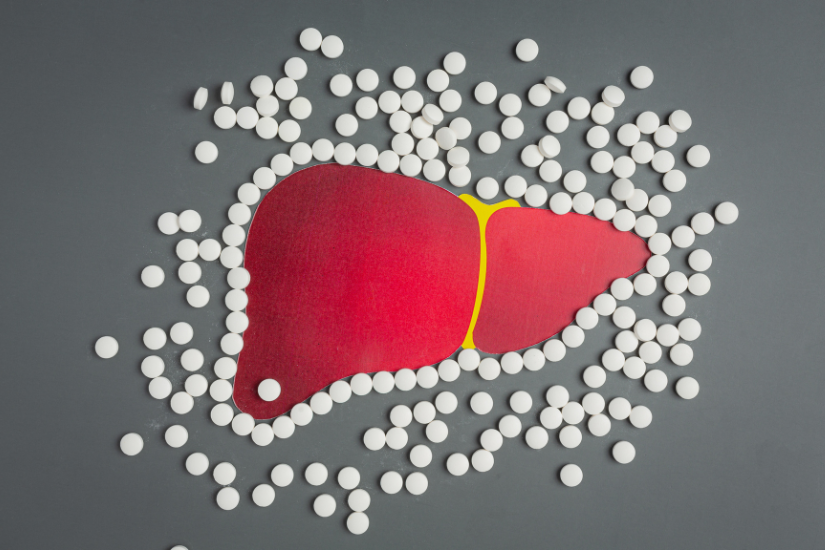Understanding More about Liver Cancer
Liver cancer is cancer that develops primarily in the liver. It is important to differentiate primary liver cancer from cancer metastasized from other parts of the body. Liver cancer usually occurs in patients with chronic inflammation or infection of the liver. There are several types of liver cancers, with the main type being hepatocellular carcinoma (HCC).
A Common Cancer
According to the World Health Organization’s International Agency for Research on Cancer (IARC), liver cancer was the 5th most common cancer diagnosed in Singapore in 2020. The most common cancers that year were breast (3,662 cases), colorectal (3,558 cases), and lung (2,916 cases).
Locally, about 3.7 people were diagnosed with liver cancer every day in 2020. Cases were more common in men than in women. Although liver cancer was the 5th most common cancer, it was among the top three causes of cancer deaths in men between 2014 and 2018.
Source: WHO Global Cancer Observatory, March 2021
Risk Factors
Most cases of HCC worldwide are linked to chronic hepatitis B infection. Others develop from liver cirrhosis, which occurs when long-term inflammation scars and hardens the liver.
Screening helps doctors detect common conditions such as hepatitis B, hepatitis C, or fatty liver disease. These conditions can progress to cirrhosis and raise the risk of liver cancer. Other major risk factors include a family history of liver cancer, smoking, and heavy alcohol use.
When doctors diagnose and treat these underlying conditions early, they can greatly reduce the chance of liver cancer development.
Reducing Risk Factors
So, what are the things that we can do to reduce the risk factors for getting liver cancer? There are three main areas we can look at. They are:
- Maintaining a healthy lifestyle
- Early medical screening for risk factors
- Control of underlying cause, which will minimise risks and help to get the condition diagnosed early
Maintaining a Healthy Lifestyle
It is important to maintain a healthy body weight and avoid development of fatty liver. Obesity and diabetes will increase the risk of liver cancer by two to three-fold if you have existing liver conditions like hepatitis B or C. Studies have shown that regular exercise and a few cups of coffee a day will reduce your lifetime risk of liver cancer development.
Persons with type 2 diabetes will need to have good control of their diabetes. This includes maintaining a healthy lifestyle, a healthy body weight and having regular exercise. Certain diabetes drugs like metformin and cholesterol medications have been shown to reduce the development of liver cancer in large population studies. Those who drink alcohol heavily are also advised to either cut their alcohol consumption to less than 7 standard drinks per week (especially if they have chronic liver conditions) or to totally abstain from alcohol (if they have liver cirrhosis).
Early Screening
If you have family members with a medical history of chronic hepatitis (such as hepatitis B) or liver cancer, you should seek medical attention and screen for risk factors of liver diseases and liver cancer. The main risks for chronic liver diseases in Singapore are chronic hepatitis B infection, chronic hepatitis C infection, obesity/diabetes leading to fatty liver, and excessive alcohol intake. Your doctors can screen you for these conditions and perform liver scans to exclude liver cirrhosis.
Once any condition that causes chronic liver disease is diagnosed, regular follow-up with your gastroenterologist will enable early treatment of liver inflammation related to the condition. For example, liver inflammation related to chronic hepatitis B can be treated before the condition worsens and progresses to liver cirrhosis. If you end up having liver cirrhosis or chronic hepatitis B, your doctor will also do regular blood tests and ultrasound scans to screen for any lesions that may be early signs of liver cancer. This is because liver cancer does not cause any symptoms in a person until the late stage. By that stage, treatment for the liver cancer will be limited.
Medical Control of Underlying Conditions
Following up with your gastroenterologist will allow you to receive necessary treatment early. Currently, there are potent drugs that can be used against chronic hepatitis B and hepatitis C infections. These significantly reduce the risk of liver cancer development by suppressing the virus, and ultimately cure the condition.
Tenofovir alafenamide (TAF) is a potent anti-hepatitis B drug that can reduce the risk of liver cancer and cirrhosis development by 50-80% over time. Sofosbuvir/Velpatasvir is another potent drug that can cure chronic hepatitis C infection with a 98% success rate after only 3 months of treatment. These drugs can effectively reduce the future risk of liver cancer and liver cirrhosis progression.
Patients with fatty liver can reduce the progression to cirrhosis by getting evaluation from the liver specialists. Healthy lifestyles must be maintained to reduce body weight and the risk of disease progressing to cirrhosis.
Diagnosis
In general, patients with certain chronic liver conditions (such as hepatitis B) who are at risk of developing liver cancer should have follow up with their family doctors or liver specialists and go for regular blood tests and ultrasound scans of the liver once every 6-12 months. People with chronic liver conditions that run a higher risk of developing liver cancer, such as liver cirrhosis and chronic hepatitis B on treatment, should get ultrasound liver scans and blood tests done once every six months.
If a routine scan detects liver nodule(s) that is suspected for liver cancer, the doctor will usually perform another scan, such as CT or MRI, on the liver to further improve diagnostic accuracy and confirm whether the nodule is liver cancer.
Treatment
Surgical Options
Doctors may recommend surgery when the tumour is small and accessible. Surgery can remove part of the liver or, in some cases, the entire organ through transplantation. Liver transplantation also removes the underlying cirrhosis, though donor availability is limited.
Non-Surgical Options
If surgery is not possible, doctors can use local ablation, where heat or cold destroys cancer cells. Another method is transcatheter arterial chemoembolization (TACE). This procedure delivers chemotherapy directly into the tumour’s blood supply and blocks it. A similar approach, selective internal radiation therapy (SIRT), uses tiny radioactive beads.
Drug Therapy and Immunotherapy
For advanced liver cancer with good liver function, targeted drugs or immunotherapy may help control tumour growth. These treatments require close monitoring by oncologists to manage side effects and evaluate effectiveness.
Taking Care of the Family
If you have any family members who have been diagnosed with chronic hepatitis B, it is important to go to your doctor and request for hepatitis B screening tests for everyone in the family. This is particularly necessary for a pregnant mother as there is a possibility that hepatitis B infection can be passed on to the child at birth. This is known as vertical transmission. As hepatitis B vaccination was only available in Singapore from the late 1980s, those who were born before this period should have their hepatitis B antibodies checked at their family doctors. If you have other conditions that predisposes you to advanced liver diseases such as fatty liver and excessive alcohol intake, it is recommended to talk to your doctor regarding this.
In conclusion, awareness of the causes leading to high liver cancer risk is important. Early diagnosis and intervention of these liver conditions can reduce your liver cancer risks for many years to come. PRIME
















Leave A Comment